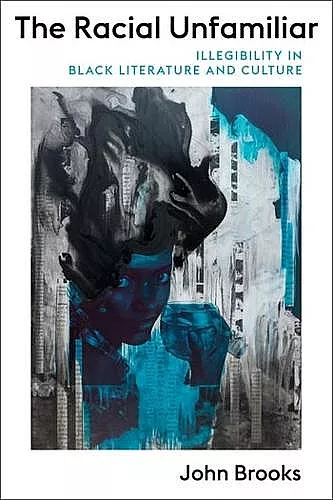The Racial Unfamiliar
Illegibility in Black Literature and Culture
Format:Paperback
Publisher:Columbia University Press
Published:30th Aug '22
Should be back in stock very soon

Exploring a variety of innovative works, The Racial Unfamiliar challenges traditional views of race and identity through contemporary Black art and literature.
In The Racial Unfamiliar, John Brooks delves into an array of abstractionist, experimental, and genre-defying works by Black writers and artists. He challenges conventional perceptions of race, arguing that literature and visual art that transcend the traditional boundaries of Black identity can disrupt established notions of race and difference. Many contemporary Black artists create works that resist being categorized within familiar frameworks, embracing complexity and ambiguity rather than adhering to expected narratives.
Brooks highlights the works of notable figures such as Roy DeCarava in photography, Kara Walker in installation art, and authors like Percival Everett and Paul Beatty. He identifies a common aesthetic sensibility among these creators, where the usual tools that render race recognizable are employed to challenge and unsettle cultural assumptions. This approach not only complicates the representation of Black identity but also questions the very foundations of racial ideologies.
By examining how contemporary literature and art compel audiences to reconsider their understanding of race, The Racial Unfamiliar presents an innovative perspective on African American cultural production. Brooks argues that the disorientation caused by these works exposes the inconsistencies within racial discourse, encouraging a deeper engagement with the complexities of identity and representation in today's society.
Using the concept of “critical blackness” to signal a deconstructive sensibility, Brooks shows how a set of artists defy conventions and preconceptions about how to see blackness, and how to think of artistic genres and aesthetic traditions about black literature and race more generally. Brooks makes us “hear” photography and see how a novel can “sound” like bebop to show how the strategic illegibility produced by critical blackness is not only conceptual but also sensorial. The Racial Unfamiliar prompts us to explore how the senses might be re-educated to reject racial normative ways of perceiving blackness. -- Glenda Carpio, author of Laughing Fit to Kill: Black Humor in the Fictions of Slavery
John Brooks’ The Racial Unfamiliar elegantly describes a cohort of contemporary Black artists whose abstractionist aesthetics unfix race from essentialized representation, privileging instead disorientation and illegibility. This is groundbreaking work that cogently articulates a critical Blackness that is not about countering stereotypes, but rather the power of illegibility to unmake race. -- Sheri-Marie Harrison, author of Jamaica’s Difficult Subjects: Negotiating Sovereignty in Anglophone Caribbean Literature and Criticism
In The Racial Unfamiliar, John Brooks makes a compelling case for "critical Blackness" as a term for appreciating the conceptual pressure artists put on blackness, as an idea, in their representational experiments. Deftly, aptly, beautifully, Brooks showcases a fluency across visual art, sound, and literature as he advances his argument about an aesthetics of abstraction and illegibility. His close readings are brilliant and inspiring and the result, this essential book, amplifies criticality as a defining dynamic of contemporary Black expressive traditions. -- Kevin Quashie, author of Black Aliveness, or A Poetics of Being
John Brooks joins the vanguard of scholars chronicling Black expressive culture. Spotlighting the ‘abstractionist aesthetics’ of artists such as Suzan-Lori Parks and Kara Walker, he dynamically enters the debate on what Blackness is and ain’t by forcefully rejecting essentialism in favor of the opaque, illegible, and variable. -- Harvey Young, author of Embodying Black Experience: Stillness, Critical Memory, and the Black Body
ISBN: 9780231205030
Dimensions: unknown
Weight: unknown
304 pages